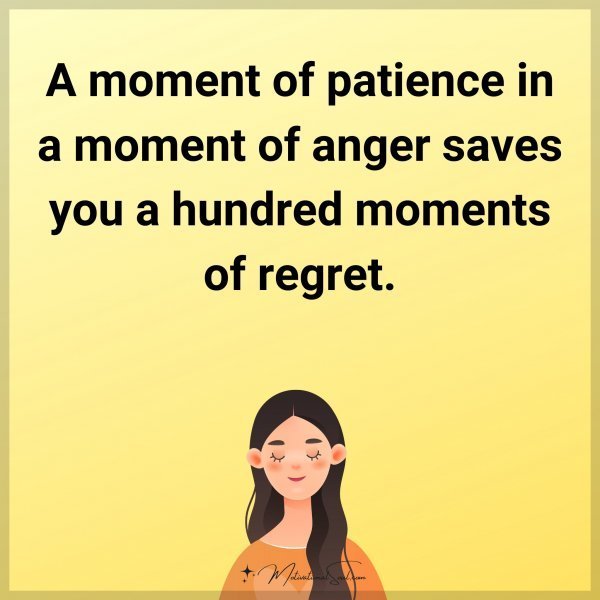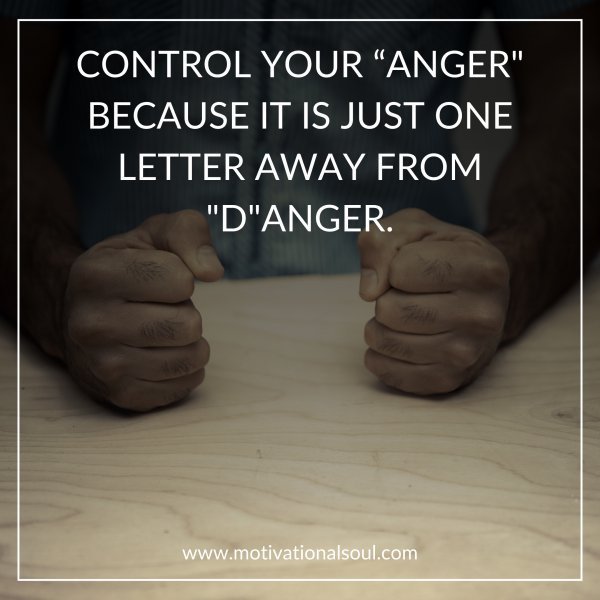Stay Calm With These Anger Management Strategies

Do you ever feel on edge? Are your stress levels through the roof? If so, you’re not alone. Millions of people around the world struggle with anger management issues. Thankfully, there are many strategies that can help you stay calm and in control. In this blog post, we will discuss anger management techniques that have been proven to be effective.
Why is Managing Anger Important?
Anger is a normal human emotion, but it can become a problem if it’s not managed in a healthy way. When anger isn’t expressed in an appropriate way, it can lead to problems at home, at work, and in relationships. It can also lead to health problems like high blood pressure, heart disease, and stroke.
Managing anger doesn’t mean you have to suppress your emotions or hide your anger from others. It means learning how to express your anger in a way that is constructive and doesn’t hurt yourself or other people.

Why is it that I tend to get angry so easily?
There are many different factors that can contribute to anger problems. Some people have a difficult time managing their emotions because of how they were raised. Others may have experienced trauma or stress in their lives that have made them more reactive. There are also some medical conditions that can make it difficult to control anger. If you find yourself getting angry frequently, it’s important to talk to a doctor or therapist to find out if there is an underlying cause.
What are some effective anger management strategies?
There are many different techniques that can help you manage your anger. Some people find that Cognitive Behavioral Therapy (CBT) is helpful in teaching them how to change their thought patterns and reactions. Others find relief through relaxation techniques like yoga or meditation. Some people find it helpful to talk to a friend or counselor about their anger. And for some people, medication may be necessary to help them control their emotions.
The following are the techniques to employ in your anger management control strategy:
Identify Triggers
One of the most effective anger management strategies is to identify your triggers. Everyone has different things that set them off, and it’s important to be aware of what those triggers are. Once you know what sets you off, you can start to develop a plan for how to deal with those triggers. For some people, deep breathing or walking away from the situation may be enough to diffuse their anger. For others, more intensive therapy may be necessary. But the first step is always identifying the triggers so that you can begin to address them.

Analyze Your Rage
Managing anger is not easy, but it is important to try. After all, anger is a normal emotion that everyone experiences at one time or another. But when anger isn’t managed effectively, it can lead to problems like relationship conflict, health problems, and legal issues. That’s why it’s so important to find an effective anger management strategy that works for you.
One effective anger management strategy is to take a step back and analyze your rage. Why are you angry? Is it because of something that happened at work, or is it because of a personal issue? Once you identify the source of your anger, you can start to develop a plan to deal with it. For example, if you’re angry because of a situation at work, you might need to have a conversation with your boss about your concerns. On the other hand, if you’re angry because of a personal issue, you might need to seek counseling to help you deal with the issue. By taking the time to analyze your anger, you can develop an effective strategy for managing it.
Identify Potential Threats
Anger is a perfectly natural emotion, but it can easily spiral out of control if we’re not careful. That’s why it’s important to have some effective anger management strategies in place. One key strategy is to identify potential threats. If we know that something is likely to make us angry, we can be on the lookout for it and be prepared to deal with it in a constructive way.
This might mean avoiding triggers altogether, or it might mean preparing ourselves mentally and emotionally to deal with the situation calmly. Either way, identifying potential threats is a vital part of keeping our anger in check.

Step Away
When you feel yourself getting angry, it can be helpful to step away from the situation for a moment. This will allow you to settle down and gather your thoughts before making a decision. If possible, go for a walk or take a few deep breaths. If you can’t physically remove yourself from the situation, try to distract yourself by focusing on something else. Once you’ve calmed down, you’ll be better able to deal with the situation in a constructive way.
Get Advice from a Friend
When it comes to anger management, it can be helpful to talk to a friend who is levelheaded and understanding. This person can serve as a sounding board, helping you to process your feelings and figure out a constructive way to deal with them. The angrier you become, the more difficult it will be to think clearly and make rational decisions.
By talking to a friend, you can help keep your emotions in check and prevent yourself from doing or saying something you might regret later. In addition, this person can offer impartial advice and perspective on the situation, which can be invaluable when trying to resolve a conflict. So if you’re struggling to manage your anger, reach out to a friend for support.

Get Moving
One effective anger management strategy is to get moving. When you’re feeling angry, your body produces adrenaline, which can lead to a feeling of being amped up. Exercise can help to burn off that excess energy and release endorphins, which can improve your mood. Even a brief walk or a few minutes of jumping on a trampoline can help to diffuse anger. So next time you’re feeling angry, try taking a lap around the block or doing some squats. You may just find that you feel better afterward.
Control Your Thinking
It’s impossible to eliminate anger from your life entirely. However, it is possible to manage your anger in a healthy way. One effective anger management strategy is to control your thinking. When you’re feeling angry, take a step back and examine your thoughts. Are you saying things like, “This is unjust” or “I can’t live through this”?
If so, try to re-frame your thinking. Instead of focusing on the negative, try to find the silver lining. For example, you might tell yourself “this is an opportunity to practice patience” or “this will help me build character.”You can help to diffuse anger before it gets out of control by taking control of your thoughts.

Switch Your Focus
One effective anger management strategy is to change the channel. When you feel yourself getting angry, try to switch your focus to something else. You can do this by focusing on your breathing, listening to music, or thinking about something that makes you happy. This technique can help to redirect your thoughts and prevent you from dwelling on whatever is making you angry. Additionally, it can help to lower your heart rate and calm your nerves.
If you find yourself getting angry often, experiment with different techniques until you find one that works for you. With a little effort, you can learn to control your anger and maintain a more positive outlook on life.

Focus on Relaxation
It’s been said that anger is only one letter away from danger. When we get angry, we can make poor decisions that we later regret. We may say or do things that damage our relationships. We may even act out physically, causing harm to ourselves or others. That’s why it’s so important to have an effective anger management strategy in place. For many people, relaxation is key.
When we’re feeling angry, our body becomes tense and our heart rate increases. Deep breathing and other relaxation techniques can help to reverse these physical effects and help us to feel calmer and in control. By taking a few minutes to relax, we can avoid making a situation worse and help to prevent future episodes of anger.

Explore Your Emotions
Among the most useful anger management strategies is to simply explore your emotions. What are you feeling? What might be causing these feelings? Are they valid? Once you have a better understanding of what you’re feeling, it can be easier to manage your anger in a constructive way. For example, if you’re feeling angry because someone has wronged you, it may help to talk to that person directly about the issue. On the other hand, if you’re feeling angry because of something that’s outside of your control, like traffic or the weather, it may help to take some deep breaths and focus on relaxing your body. In any case, exploring your emotions is a good first step in learning how to manage anger effectively.

Avoid Suppressing Your Anger
If you’ve been taught to suppress your anger, you may not even be aware of how much anger you actually feel. As a result, you may find yourself exploding over minor Issues. Or, you may find yourself bottling up your anger until it turns into resentment. Learning to express your anger in a healthy way is an important part of anger management.
One effective anger management strategy is to allow yourself to experience your anger fully and then let it go. When you’re angry, take some time to really feel the emotion. Notice where you feel it in your body and what thoughts are going through your head. Once you’ve given yourself permission to really feel the anger, let it go. Imagine the anger dissipating and flowing out of your body. This technique can help you to release the anger without acting on it in a destructive way.

Create a “Calm Down” Kit
One effective anger management strategy is to create a “Calm Down” Kit. This can be a physical container, such as a box or a bag, that is filled with items that help you to relax and de-stress. It can be helpful to include both physical and mental items in the kit. For example, you might include a favorite book, a stress ball, and a picture of a loved one.
The goal is to have a go-to spot for calming down when you start to feel angry. This will help you to avoid making impulsive decisions or acting out in anger. With a little planning, you can set up your own Calm Down Kit and be on your way to better managing your anger.

Getting Help
If you find that you’re struggling to control your anger, it may be time to seek out professional help. A therapist can help you to understand the root causes of your anger and develop an effective treatment plan. If you’re not ready to see a therapist, there are also many helpful books and online resources available on anger management. By taking the time to learn more about anger and how to manage it, you can make positive changes in your life and improve your relationships.
Conclusion
When it comes to managing anger, there is no one-size-fits-all solution. That is not to say that what works for one person may not work for another. What matters most is that you find a method that works for you and remain consistent with it.
The above are some of the most effective anger management strategies that can help you to stress less and stay calm. By taking the time to understand your emotions and learn how to manage them effectively, you can make positive changes in your life. If you’re struggling to control your anger, don’t hesitate to seek out professional help. With a little effort, you can learn to manage your anger in a constructive way.




Recent Comments